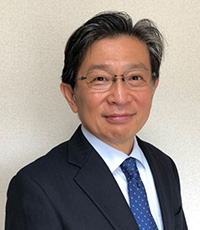
Biomaterials are medical materials used within the body or in contact with the body. Examples include artificial bones, artificial joints, artificial hearts, and dental implants (artificial implant body). They are regulated by the Pharmaceutical Affairs Law, which ensures the quality, efficacy, and safety of pharmaceuticals and medical devices. Biomaterials are classified as medical devices. The Japanese Society for Biomaterials, as its name suggests, serves as a platform for research, development, and industrialization of the biomaterials.
Biomaterials attract attention from three perspectives. The first is their essential role in improving the quality of medical care. For example, the "Basic Plan for Promoting Research and Development as well as Dissemination of Medical Devices to Improve the Quality of Medical Care Provided to the People" has been approved by the Cabinet and enacted into law. This plan outlines phases for research and development as well as dissemination, with the fundamental policy for research and development being the "establishment of Japan's position as a hub for the research and development of medical devices." Specific policies include the enhancement of "talent," "location," "funding," and "information," which are envied globally. The Japanese Society for Biomaterials will contribute to all these aspects except for "funding."
The second perspective is addressing the super-aging society. Human biological functions decline with age. Extending both average lifespan and healthy lifespan (the period during which individuals can live without restrictions in daily life due to health issues) is an urgent challenge. It is necessary to improve the quality of medical care through the biomaterials in order to extend healthy lifespan.
The third perspective is the growth strategy (Japan Revitalization Strategy). This, also, is a matter approved by the Cabinet, and one of the themes of the Strategic Market Creation Plan is the extension of healthy lifespan. It is noted that the global market for medical devices maintains a growth rate of approximately 8%, and despite Japanese manufacturing companies possessing advanced technologies that can be applied to medical devices, the current domestic market for medical devices is experiencing a trade deficit overall, with imports exceeding exports.
In essence, medical devices are essential for improving the quality of medical care, which becomes particularly crucial for our country as we confront an aging society. Enhancing medical care quality is a global imperative, and advancing medical device development stands as a top priority in our growth strategy.
How about advancing biomaterial research, development, and industrialization together with The Japanese Society for Biomaterials? You might hear voices saying, "Isn't that like a dream? Isn't it too difficult?" Indeed, biomaterial research, development, and industrialization are not easy tasks. Unlike conventional materials, they are subject to pharmaceutical laws. However, it's worth noting that The Japanese Society for Biomaterials includes members from the Pharmaceuticals and Medical Devices Agency (PMDA). The government has conducted thorough analysis and conclusively stated that "Japanese manufacturing companies possess advanced technologies that can be applied to medical devices." So, what could be the bottleneck for biomaterial research, development, and industrialization? I believe it's the integration of people and knowledge.
Not just limited to biomaterial research and development, progress in research and development is driven by the integration of people and knowledge. However, biomaterials are used in medical applications and in contact with living organisms, demanding even higher levels of integration. The Japanese Society for Biomaterials comprises medical professionals including medical doctors and dentists, biologists, and material scientists, providing an optimal platform for integration.
The Japanese Society for Biomaterials is approaching its half-century mark since its establishment in 1978. We are tasked with "inheriting" the history and wisdom of biomaterials established by our predecessors, further "advancing" both biomaterial science and the biomaterial industry, and "leading" the biomaterial field. Let's work together towards this goal!
Kunio Ishikawa, Ph.D.
24th President of The Japanese Society for Biomaterials
Professor, Faculty of Dental Science Kyushu University